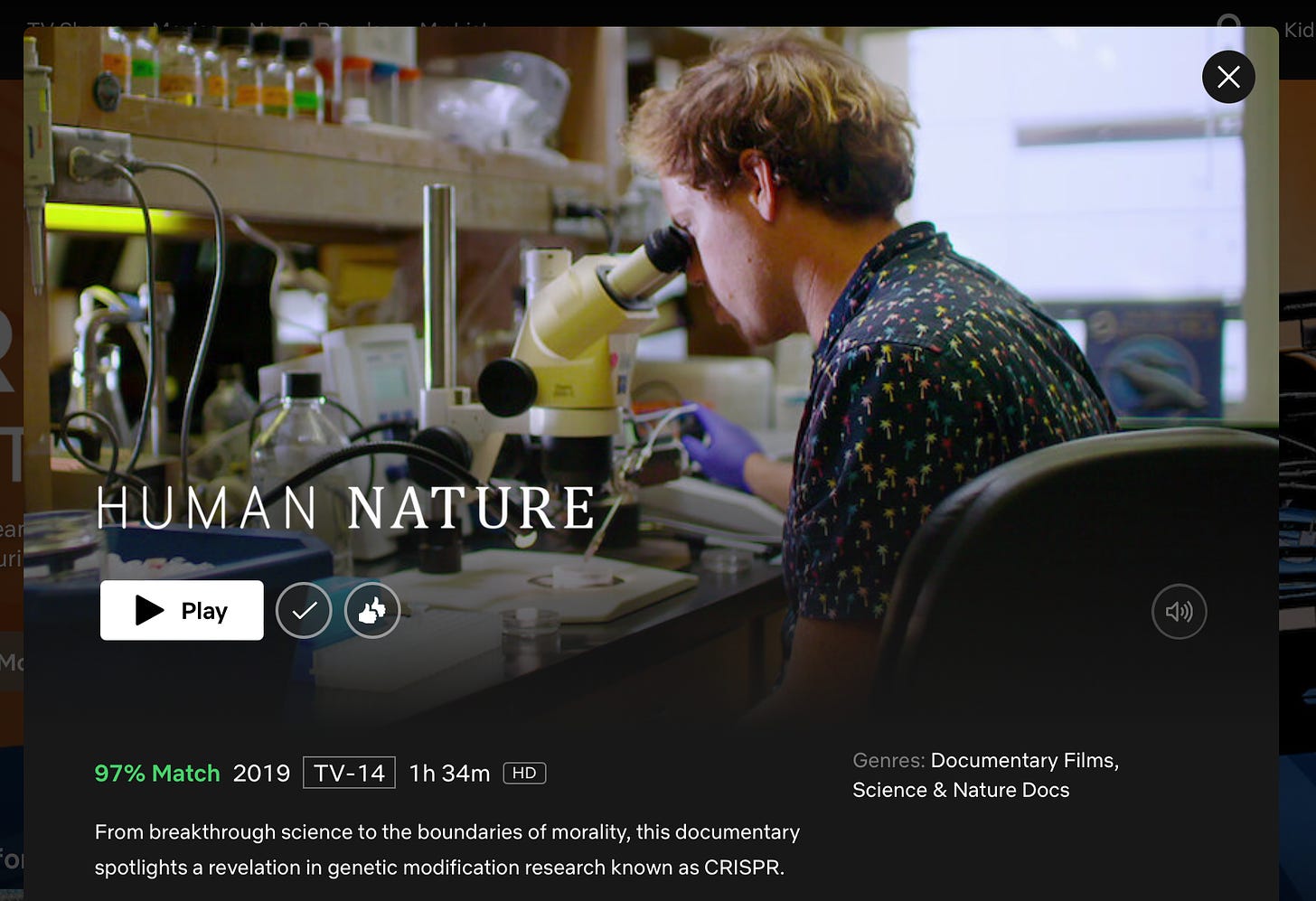Here at Steady, we recognize that we give you a "steady" dose of politics. That tendency reflects the time in which we live. The stakes, as this community has discussed on numerous occasions, could not be higher: the rule of law, equity and justice, the future of the republic.
But when we look back at the course of the human story, while the history of nations and peoples is important, it is not the only force that shapes our future. You could argue that it is less important than shifts in technology or thought, although those forces are inherently intertwined with the fate of countries.
This broader perspective becomes even more salient as we begin to consider the intervals of centuries and millennia. There the vagaries of daily life and human governance tend to recede. How much do we know about the palace intrigue of the Mayan court? The factions that drove the Mongol invasions? All the kingdoms and empires that rose and fell with little archaeological documentation? As the poem “Ozymandias” reminds us, the legacy of once-powerful leaders is often measured in ruins and dust.
In contrast, innovations and technology remain with us and only expand in influence — the wheel, agriculture, and pottery. Gun powder, the compass, the telescope. The sail, the telephone, antibiotics. A key facet of our modern world is the increasingly rapid pace by which technology shapes our lives and our interaction with our planet — for good and bad.
With all this in mind, we wanted to mark an anniversary that was certainly overshadowed this week by congressional hearings and Supreme Court decisions. Yet a thousand years from now it might be what is most remembered of our times. It’s been 10 years — an imperceptible beat of time in human history — since a paper was published in the journal Science announcing a breakthrough in the technology known as CRISPR.
Published by a pair of researchers — Jennifer Doudna and Emmanuelle Charpentier (along with members of their labs) — this new tool quickly began to revolutionize the worlds of medicine and basic research. It gives humans the ability to edit DNA with precision and ease, which opens the door to insights scientists could not have previously imagined. Drs. Doudna and Charpentier were awarded a Nobel Prize in 2020 for their discovery.
CRISPR and its implications are profound — I have suggested it might end up being one of the biggest stories I have ever covered. I won’t go into too much detail here, because, as many of you likely already know, we made a documentary film about it. It’s called “Human Nature,” and we’re really proud of it.
We strived for nuance in the narrative and artistry in the filmmaking. For those who have Netflix, it’s available for streaming. If you have seen it or you watch it now (maybe a weekend viewing?), we would love your feedback. Also, we are hearing that it is being shown in school science classes. This makes us very happy, and we would love to hear about any instances of the film's use in education.
(Click image below to go to film on Netflix)
The inspiration for this film came in large part from an interview I did with Dr. Doudna. I have interviewed a lot of people over the course of my life, and this conversation stands out. The nature of her work and the lens through which she views the world are mind expanding.




I love this edition of Steady! I had just commented that for me an antidote to the horror of the political news is that I read emails from scienctic places...not real heady scientific places, but ones that usually send out something I can just about understand. I totally agree that the progress and discoveries being made in the world of science are beyond anything I think I could have imagined 60 years ago and the brilliance and dedication of all those involved is remarkable. I often remark to my children that had I known science was so neat I may have become a part of the science community, but I grew up at a time when most women were expected to be nurses, teachers or housewives. Thank goodness at least for now (and probably forever in other nations) we are tapping into the minds of all creative persons, be they women, persons of color, persons of different religions or of whatever sexual orientation they may be. I do believe that as the US becomes more and more GOPish and our education system moves in the direction of not supporting or believing in science, we will fall more and more behind the rest of the world in terms of contributing to the wealth of knowledge, and I hope that in spite of our increasingly horrible human rights reputation that other nations will share what they learn with us. Sadly, Texas seems to be leading this race away from knowledge, but several other states are close behind.
Thank you for this! It is now on my weekend watch list.